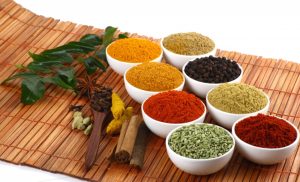Halloween is now so popular and is widely celebrated with different costume parties and trick or treat events. But how did Halloween come to be? It is said to originate in old Celtic festival called Samhain where people would dress up like bad spirits to ward off ghosts. It is a 3-day observance starting from October 31 as All Hallows’ Eve, November 1 as All Saints’ or Hallows’ Day and November 2 as All Souls’ Day. With fabulous costume parties and other Halloween festivals everywhere, it’s quite hard not to think of where would be the best of the best places to celebrate Halloween. Here are our top 3 picks for the coolest places to celebrate Halloween.
TRANSYLVANIA, ROMANIA
What would be much cooler than celebrating Halloween in the hometown of the most infamous vampire of all time, Count Dracula? Exciting Halloween events are all over the place, and it’s not unusual to get chills running up and down your spine because the classic horror castle backdrop of the Bran Castle is so thrillingly creepy adding up to the horror-related festivities all around. One of the biggest Halloween party is celebrated in the home of Count Dracula so just prepare your best costume and enjoy the night. You might even catch a glimpse of the Count enjoying the fun. Kidding… not!

MEXICO
The whole of Mexico is celebrating the Day of the Dead in a week-long celebration. This is the time of the year when their dearly departed returns to the land of the living to visit their loved ones. So if you’re excited to see traditional Halloween celebration head now to Mexico to enjoy elaborate and colorful macabre celebrations. From morning until night, you’ll get your hands full. Cemeteries are full of families having picnics and celebrating their dead family members with lively music. Carnival-like celebration on the streets are also a thing here so prepare to dance to folk songs and upbeat Mexican music.
IRELAND
The place where all this Halloween fuss started, the cradle of all the spooky celebrations during Halloween started here in Ireland. Samhain Night is much celebrated here and most of the Celtic celebrations are being done repeatedly same time each year, like big bonfires, carving pumpkins, dancing around the bonfire, baking Samhain bread, apple bobbing, and wearing scary costumes to drive away the bad spirits. Jack-o-Lantern urban legend was said to be an Irish tale of a stingy man named Jack who tricked the Devil, and when he died, the Devil will not allow him to hell so he had nowhere to go but roam aimlessly and reappear during Halloween each year.
